Humanities & Social Sciences
Make Philosophy a cross cutting & compulsory course – UNESCO
Published
3 years agoon
By
Jane Anyango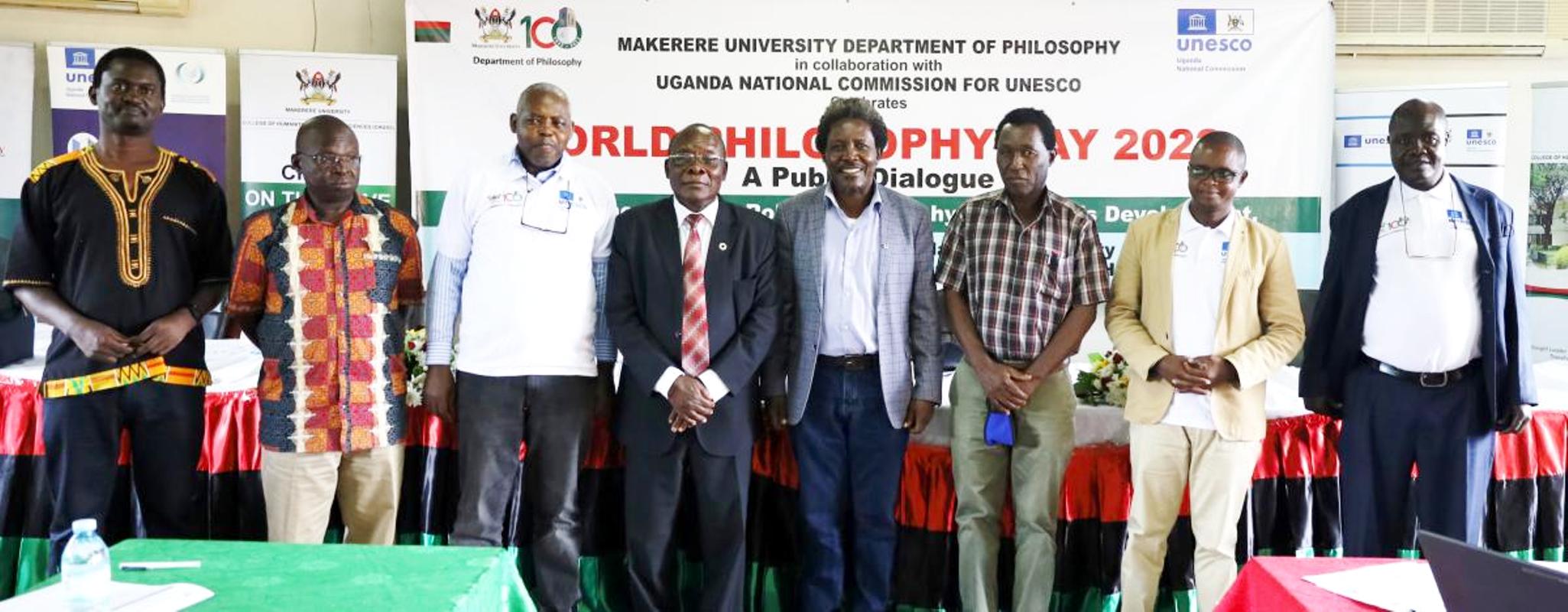
Makerere University Department of Philosophy together with the Uganda National Commission for UNESCO (UNATCOM) on 17th November ,2022 joined the rest of the world to celebrate the 20th World Philosophy Day with a call for reforms in Uganda’s education system to make Philosophy a cross cutting and compulsory course.
This year’s celebration under the Global theme, “Humans of the Future”. Uganda chose to refine the theme to speak to pressing challenges hence the theme, “Harnessing Philosophy for addressing Uganda’s Development challenges”.
The World Philosophy Day coincided with Makerere University’s celebration of 100 years of existence and service to humanity and offered an opportunity both to celebrate the immense contribution made by Philosophy in understanding the world and to further reflect.
Amidst the ongoing debates on the importance of the Humanities, the debate at this event steered conversation among the academia, government, civil society and the general public on how Philosophy can inform progress in various aspects of individual and national aspirations.
Scholars argued that Uganda has a creativity, anticipation and the empathy gap premised in philosophy and that the humanity and humanism in this country cannot be restored unless the philosophical approach is resuscitated. Unfortunately, philosophy is taught at higher levels in universities and when people search for courses, philosophy becomes the last opt option not taken as a serious course yet the country needs people to be patriotic, hopeful for the sake of development.
Convening at Makerere University Senate Conference Hall, the celebrants stressed that development cannot be achieved without including philosophy which starts with developing the human mind philosophically so that man is at peace with the environment sustainably.
When young people are in malaise bored in the morning, scholars asserted that you can only harness their strength to work for the development of this country when they have the philosophy and tenets for hope. Philosophy in that regard, brings that hope, critical thinking in humanity that is why philosophy should be a crosscutting course like communication skills, ICT and Ethics.
For example, people are downgrading all the swamps, trees are being cut but people do not think about tomorrow. Shall we teach that in textbooks and examine that? The fact that people do not have the philosophical mind even to think of what they are going to leave for their children and the future generation, is partly the reason humanities scholars say need philosophy in colleges and institutions of higher learning.
Major propositions from the meeting
- Parliament of Uganda enacts a policy that makes the teaching of Philosophy compulsory at all educational levels.
- Makerere University works with other stakeholders to draft a proposal and submit to the Education Policy Review Commission (EPRC) chaired by the former Education and Public Service Minister Amanya Mushega.
- Makerere University mobilises other stakeholders to draft a paper to the President of the Republic of Uganda through the Directorate of Ethics and Integrity on the role of Humanities and Social Sciences in addressing Uganda’s development challenges.
- Makerere University champions and rolls out dialogues in public, private and non-governmental organizations and the general public on the importance of humanities and social sciences, and philosophy in particular.
Presiding over the function as Chief Guest, the Chairman Board of Governors Uganda National Commission for UNESCO Prof. Eliabu Lugujjo said UNESCO has urged its member states to take philosophy as a unifier and an intersection in human development.
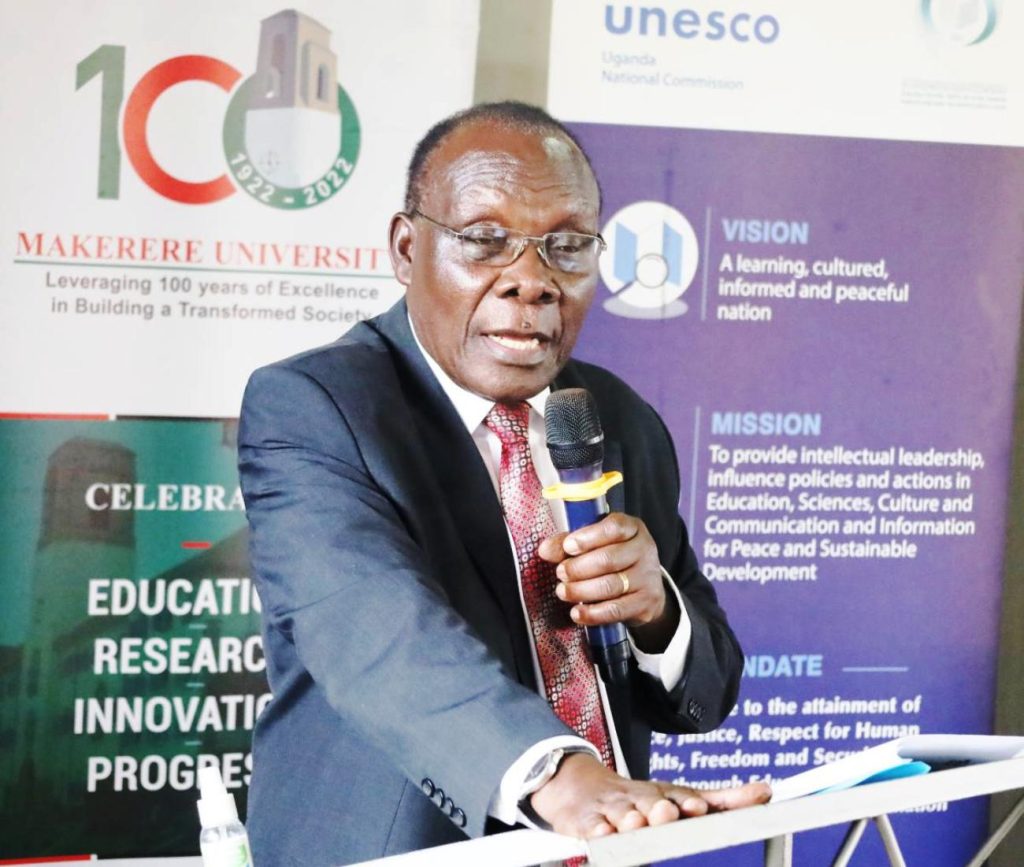
To him, the first activity required for this involves the preparation of a study about the present state of teaching of philosophy in the world as an indispensable pre requisite for any future activity in this domain, since alert, enlightened reflection is the guarantor of action that is intelligent and to the point.
Lugujjo stressed that Philosophy finds its place at the intersection of education and the social sciences and humanities. In Uganda, he observed that there is an emphasis on the immediate utility of disciplines that are offered in higher institutions of learning with the priority being technological sciences.
“But we forget that the ideal utility is in itself philosophical. Even the concept Science cannot be understood outside of philosophy…. We should understand that natural and technological science have roots in pre-socratic, medieval and modern philosophical thought” He asserted
This according to Lugujjo implies that meaningful science should be founded in philosophy. In the area of humanities and social sciences, philosophy offers among others criticality, creativity and humanness that form the essence of such disciplines and therefore philosophy is a cross cutting discipline.
“…Philosophy should be given a special attention in Uganda’s academia and practice. Let us take an example of the political challenges we have gone through as a people; the immediate question is how can we co-exist? If we stopped asking such questions, the dignity of human person, respect for others, tolerance, social justice and liberty lose meaning and we may go back to the state of nature as postulated by Thomas Hobbes, where there is war of each against all”, He stressed.
Taking an example of corruption and social injustices and their far reaching implications on the wellbeing of Ugandans, Prof. Lugujjo challenged participants to ask hard questions about the root cause and what ought to be done.
“Whereas STEM is good, it must be done with philosophy at the background because you cannot build a bridge without considering the impact to society or construct a road without considering the sociological aspect of what you are doing. Science can germinate more, when it considers the humanities”, the professor stated.
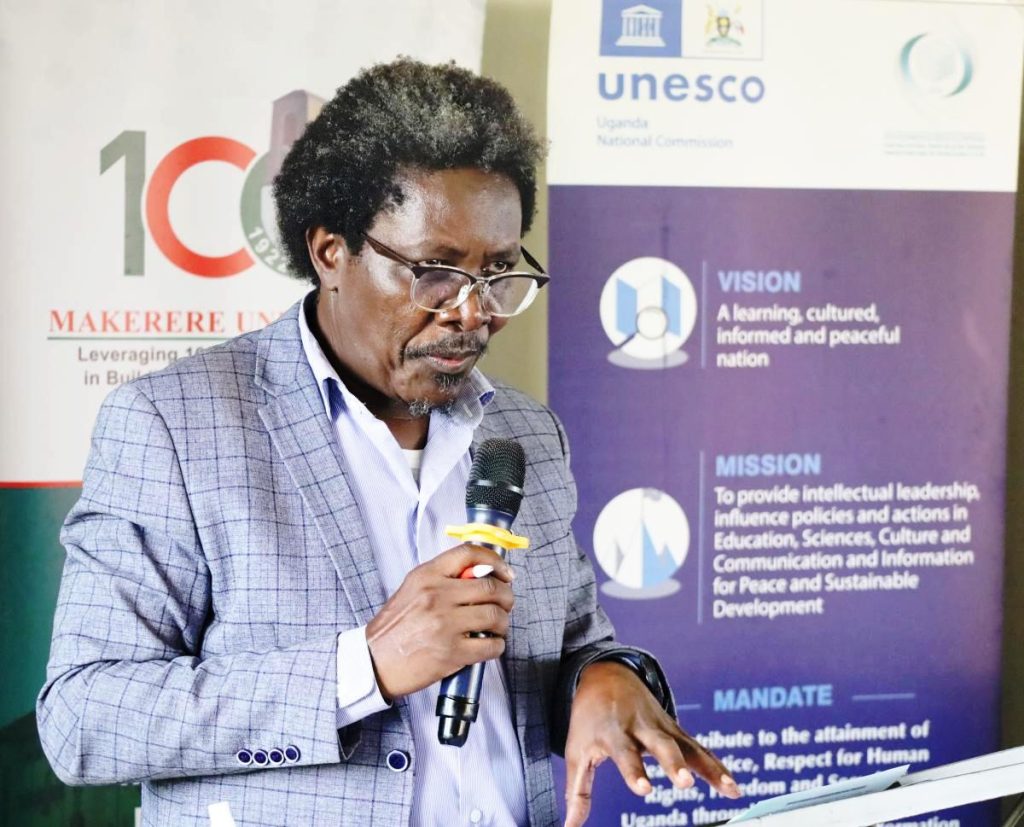
The Principal College of Humanities and Social Sciences represented by Prof. Patrick Mangeni said the conversation on the Harnessing Philosophy for addressing Uganda’s Development challenges is critical and important for the academia.
“In a number of cases, many people do not seem to appreciate the role of the knowledge seeking discipline and disposition it brings to our lives. We are in a take away generation where thinking is left as a preserve of the isolated field. It is important when we locate our discipline and conversation within the realm of knowledge because a number of people take humanities as less contributing in its base to development.” Mangeni said.
Unlike other countries where highly and A – scoring students enroll to pursue philosophy Mangeni decried that in Uganda, the program is taken as a last resort after applicants fail to secure places of their priority courses. He however reported that within the limitations, departments have continued to do tremendous work and endeavored to make students appreciate the subject.
“We have produced students with excellent performance and have moved out and made an impact to many countries and that can be testified by the number of people in the field of philosophy”.
Professor Mangeni described the day’s conversation as significant in terms of visibility imploring the head of Department to devise means of sharing them out and come up with more activities such as public lectures and seminars in the field of philosophy.
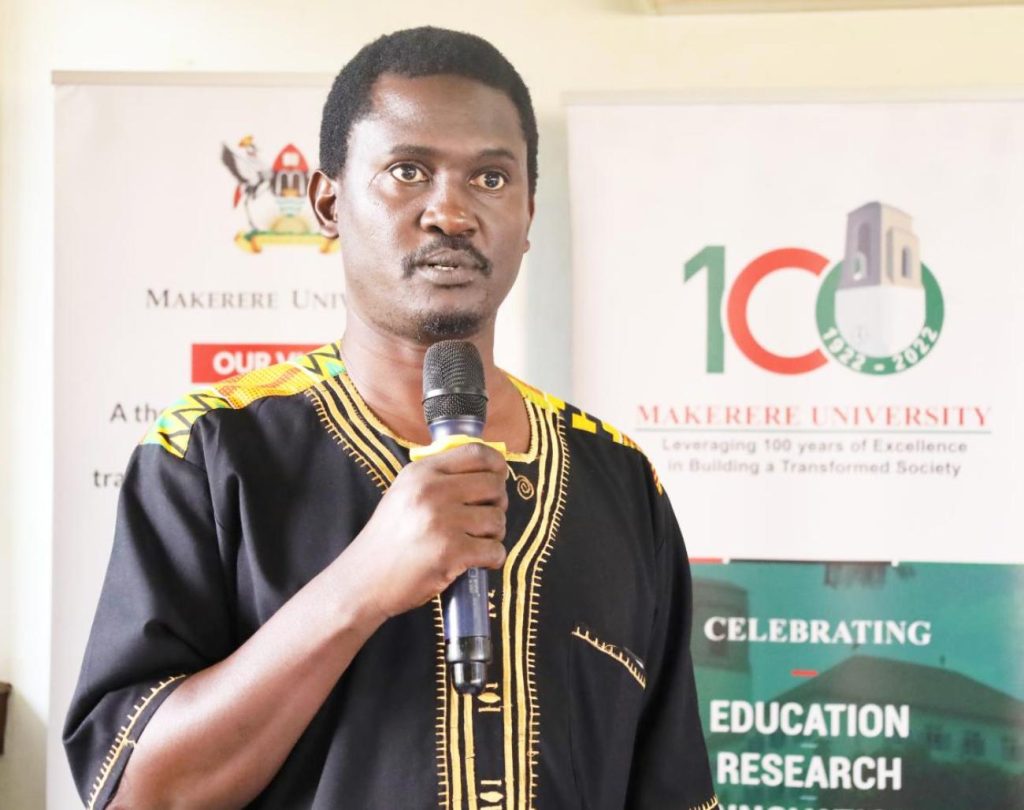
The Head Department of Philosophy Dr. Spire Ssentongo thanked all participants for honoring the invitation to celebrate and having a constructive conversation inspired by philosophy saying the engagement will discredit the unfortunate believe that philosophy is basically an area of highly abstract matters and air splitting that has little to do with life and existing challenges of society.
Dr. Spire urged colleagues in the field of philosophy to demystify the impression that philosophy is about big grammar adding that anyone who sets out to communicate yet deliberately making it difficult for others to understand, can only be described as crazy.
“It is my hope that today is about a conversation that will make realistic efforts to be understood. One of the challenges of philosophy today is that it continues to live without proving its importance to anyone that cannot find it.
Philosophy appears to carry the attitude of a mother who may seem to look on as her children denounce her uselessness. She may frown and curse but not so to refute them. This has become a challenge because we live in a world where unfortunately the value of things is measured by whether they are defined by the powerful or not”, He said.
Dr. Spire observed that philosophy today finds itself on a shaky ground in neoliberal terms where the education is left to the market and forces of demand and supply to determine what is worth. In addition, philosophy continues to be threatened in a harsh world of scientism that is growing more than critical thinking.
“Philosophers in the past lived a quiet life of pursuing knowledge without a burden of proving their relevance in material path and now forced to join the crazy stampede of territory, money and disciplinary survival. Philosophers may choose to lament about these changes and stringent demand of them but we also need to remember the African saying: – that the groans of the goat does not stop the seller dragging it to the market.
As we work for a better educational order, in the meantime we may need to ask ourselves how do we position ourselves in the markets that is the reason for mobilizing this conversation but without totally surrendering it to the whims of the market”, He challenged.
Dr. Spire said the beauty of philosophical discussion which sound is construed as a weakness, is that it is characterized by constant questioning adding that once something has an answer, it ceases to be philosophy and becomes an entirely new discipline hence the continuous breakaway of disciplines from philosophy from history.
“Whereas philosophical inquiry may not provide direct answers, it produces questions that may handle it to the discovery of answers as well as the discovery of new disciplines. While philosophy is not a hard science, it contemplative discussion has contributed and still contributes to the creation of hard sciences.
Much of what we know today for scientific facts started with philosophical speculation through asking difficult questions challenging convention wisdom. In view of the above approach philosophy is unlike other disciplines in the sense that it does not limit itself to a particular matter the way biology speaks about living things for example. Philosophy focuses on unanswered questions of various subjects and beyond old disciplines”, He explained.
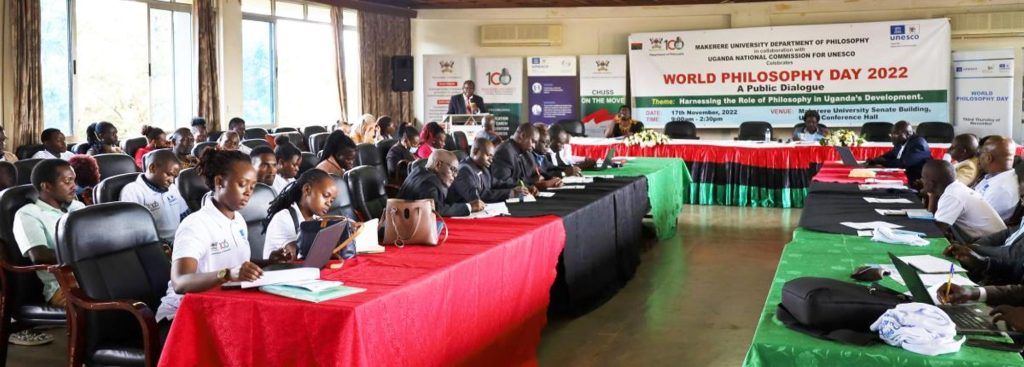
The World Philosophy Day
This year 2022, the world celebrates the 20th Philosophy day that was initiated by UNESCO in 2002 by UNESCO General Conference that highlighted the importance of this discipline especially for young people. The general Conference underlined that Philosophy is a discipline that encourages critical and independent thought and is capable of working towards better understating of the world and promoting tolerance and peace.
UNESCO hopes to promote philosophical reflections throughout the world by opening spaces and encouraging people to share their philosophical heritage, opening their minds to new ideas, and inspiring public debate on society’s challenges.
The commemoration of the World Philosophy day on the third Thursday of November is reported to be associated with the birthday of Plato, a Greek philosopher born in Anthens during the classical period in ancient Greece. UNESCO as the initiator leads the World Philosophy Day but does not own it. It belongs to everyone who cares about philosophy.
This year’s Global theme is, “Humans of the Future” given the contestation about the concept, “human” and that human being of today has been affected a lot by politics, economics, socialization, science and technology which have an implication on the human being of the future in terms of development especially in Uganda.
You may like
-


Press Statement: Makerere University Congratulates Former Staff and Students on Successful Election to Public Office
-


Mak Hosts NCHE Competence-Based Education Standards Validation Meeting
-
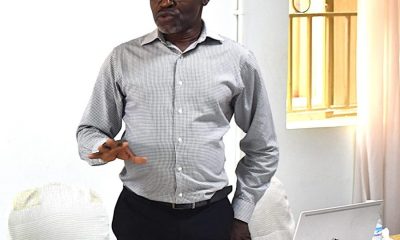

Enhancing Data Quality: NutriFishPlus Research Assistants Retooled Ahead of Baseline Survey
-
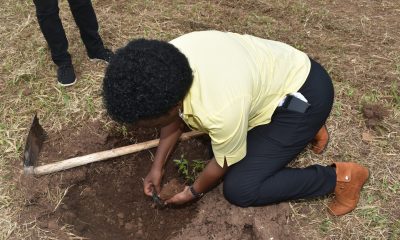

Call for Applications: QCF Postdoctoral Research Fellowships
-


Call For Applications: Annual Innovation Commercialisation Award
-
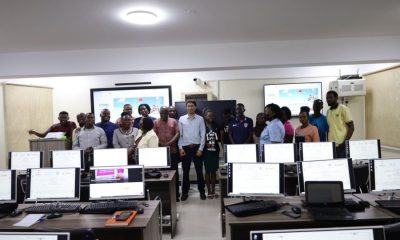

CoCIS CIPSD Short Courses Jan-Mar 2026
Humanities & Social Sciences
Dr. Pamela Khanakwa Honored for Steering Record 18 PhD Candidates for the Mak 2026 Graduation
Published
1 week agoon
January 23, 2026By
Jane Anyango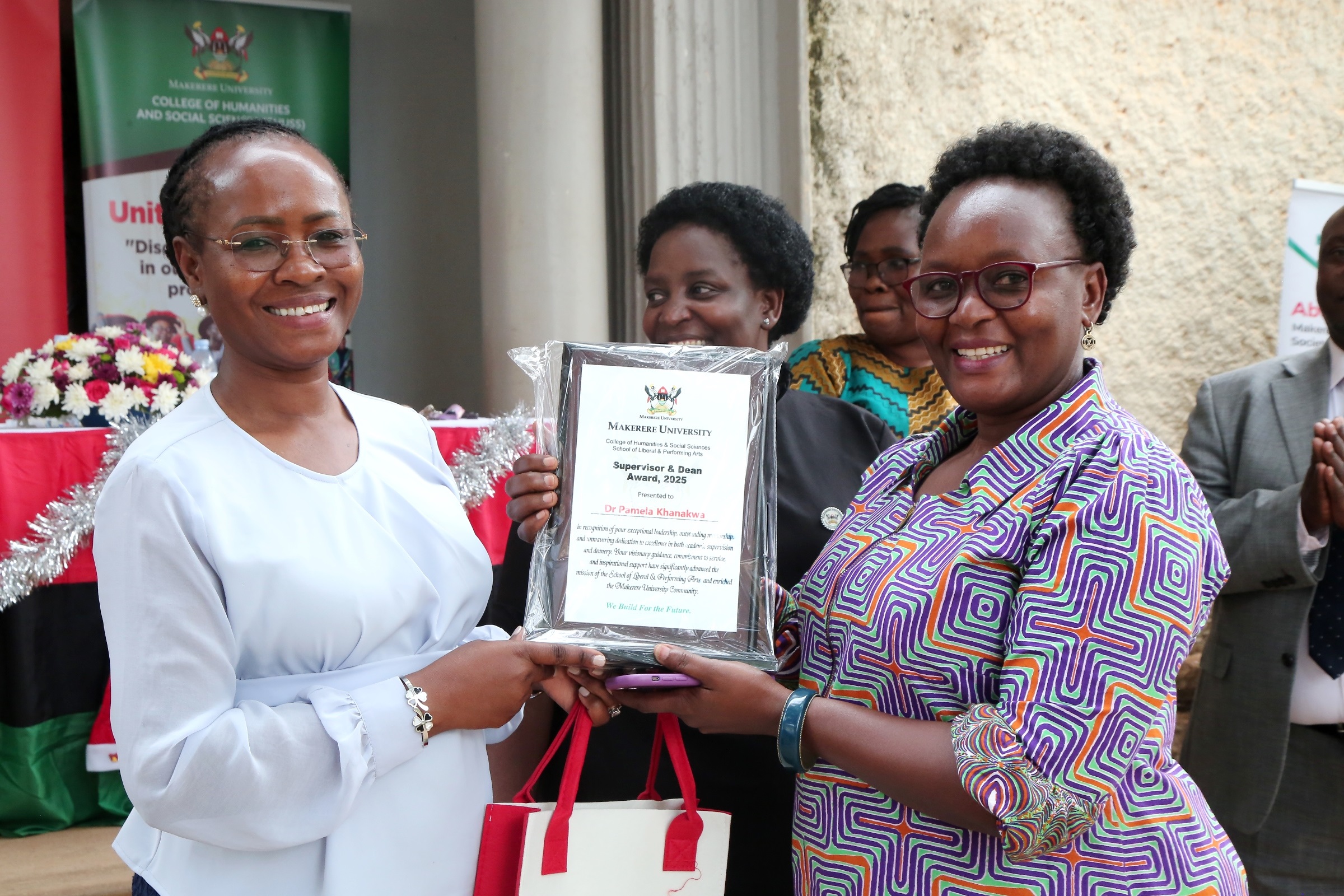
Six personally supervised, three completed in record time, as School of Liberal and Performing Arts sets a historic milestone. Dr. Pamela Khanakwa got the Award as Best PhD Supervisor and Dean
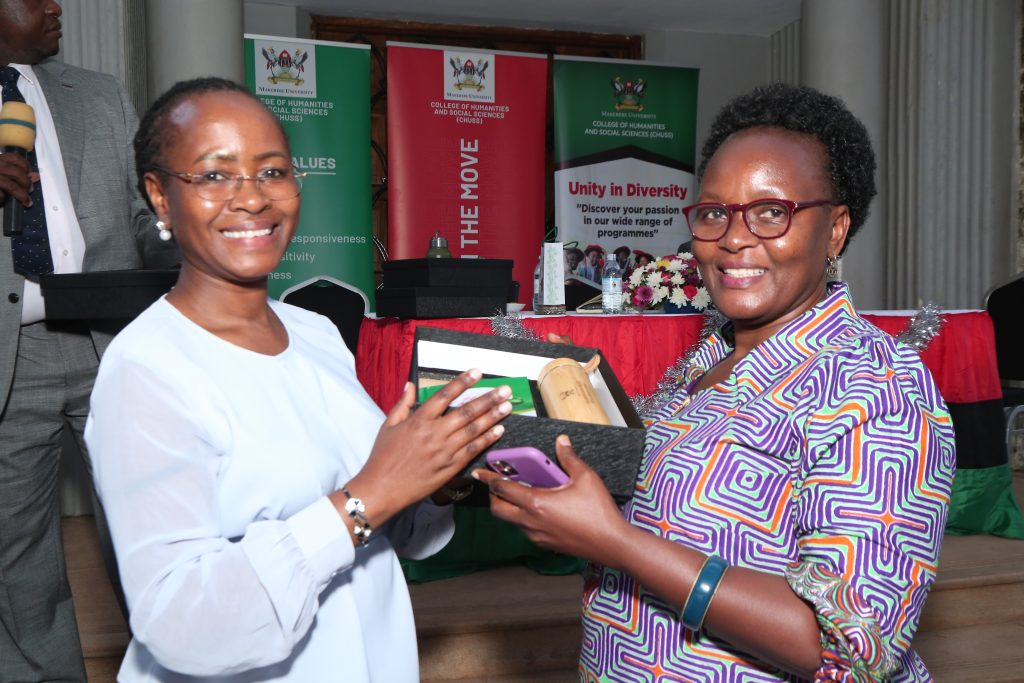
A Historic Academic Milestone for SLPA
The College of Humanities and Social Sciences (CHUSS) recognised the Dean of the School of Liberal and Performing Arts (SLPA), Dr. Pamela Khanakwa, for outstanding academic leadership that has seen the School field 18 PhD candidates for the next 2026 Makerere University Graduation Ceremony scheduled for 24th-27th February. Remarkably, six of these doctoral graduates were directly supervised by Dr. Khanakwa, with three completing within the official three-year timeframe, an exceptional achievement in graduate training. The recognition was announced during the CHUSS End-of-Year Get-Together, where staff applauded Dr. Khanakwa’s dedication, humility, and relentless commitment to postgraduate supervision and timely completion.
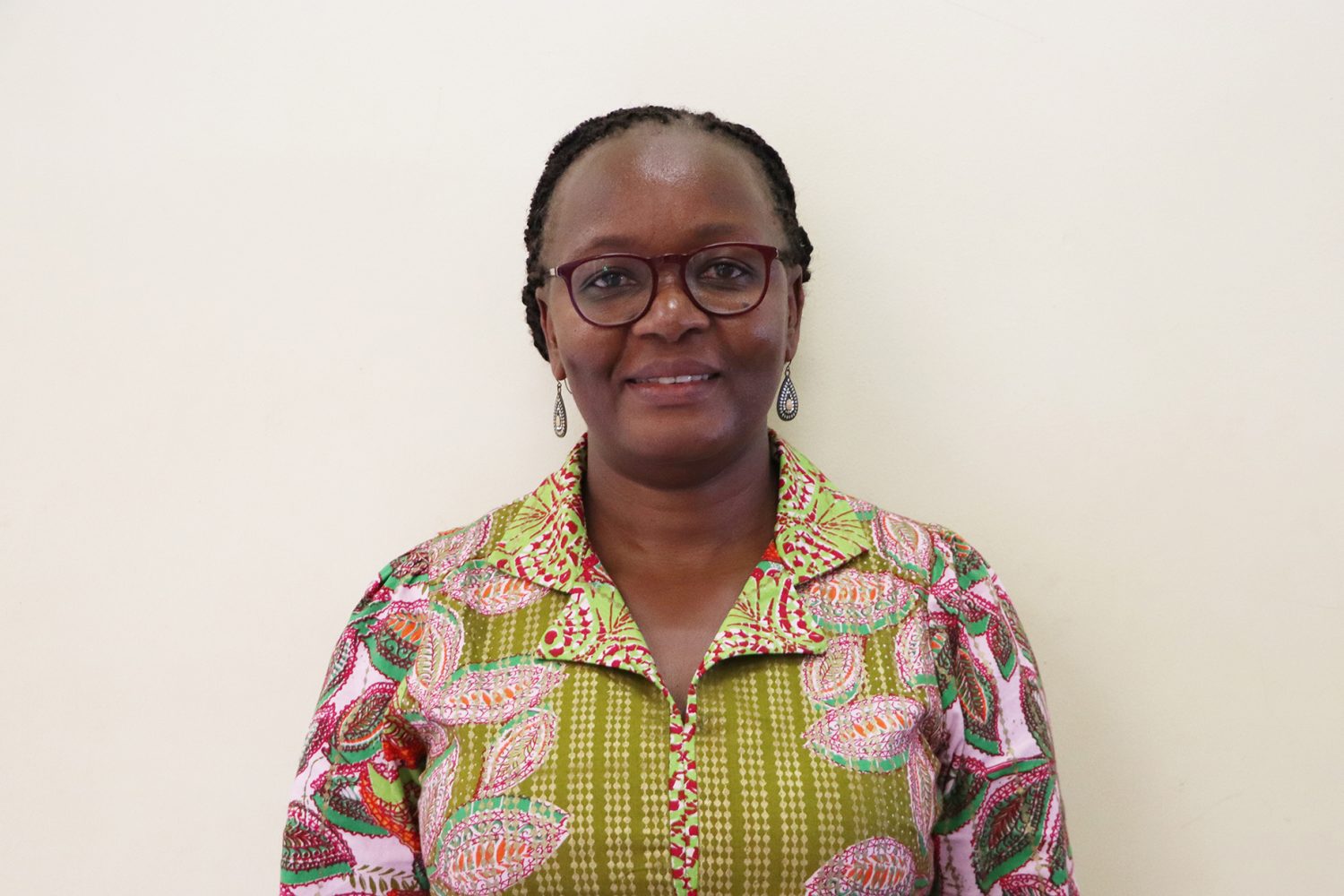
Message to Academic Staff
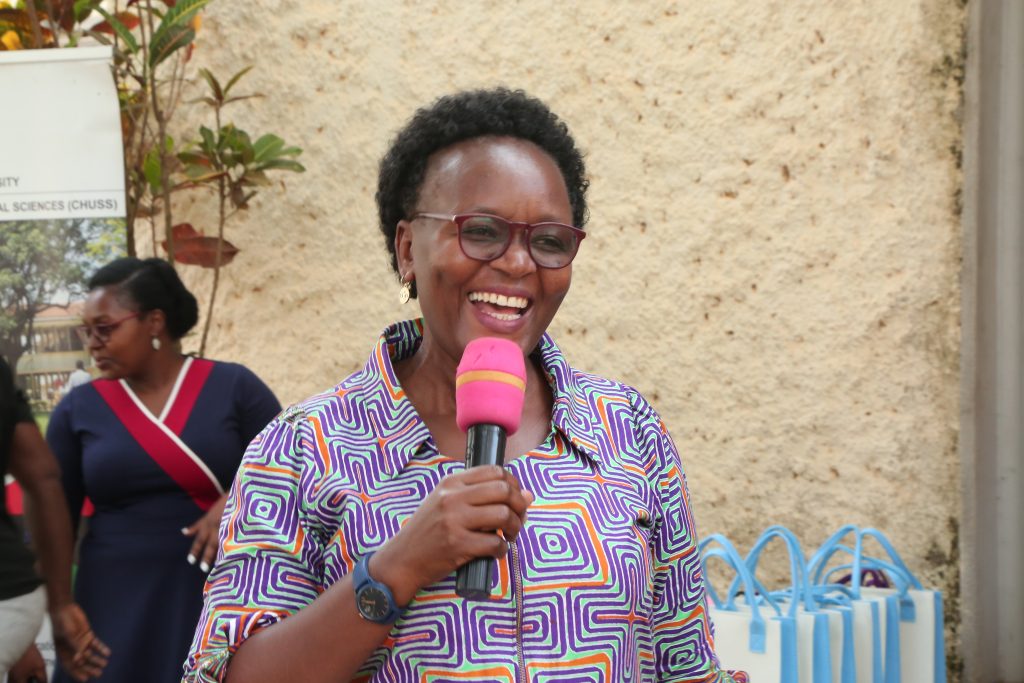
Q: What message do you have for your staff following this achievement?
Dr. Khanakwa:
First, I celebrate my staff and thank them for their dedication to supervision and student support. Academic work is demanding, and material rewards are often limited, but the true satisfaction comes from seeing students succeed.
I encourage my colleagues to remain committed. Yes, the workload is heavy, but many things are possible with dedication and teamwork. Let us continue working for the good of our students, our School, and Makerere University.
Leadership Rooted in Humility
Q: Many colleagues describe you as humble, down to earth, and hardworking. What shapes this character?
Dr. Khanakwa:
I think it is largely my upbringing. My mother was a primary school teacher from the 1950s until the mid-1980s. She worked extremely hard to raise us, combining teaching with farming to ensure we had school fees and basic needs. From her, I learned humility, discipline, and the value of hard work.
I also learned that leadership positions are temporary. You occupy them today, and tomorrow you move on. So humility is essential.
My graduate training also shaped me significantly. My PhD supervisor emphasized that graduate study is a full-time job and that results matter more than noise. Let people see your work through outcomes, not announcements.
Supervision as a Two-Way Commitment
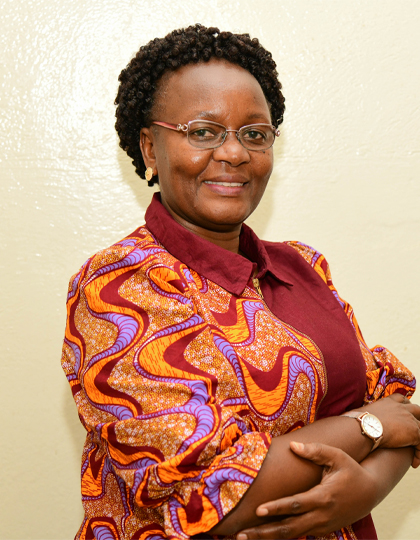
Q: How would you describe your supervision style?
Dr. Khanakwa:
I read my students’ work thoroughly, word by word. Sometimes my comments are tough, but they are honest. Supervision is a two-way commitment. I give feedback, but students must also respond and remain engaged. When that relationship works, progress happens.
Balancing Leadership, Scholarship, and Family
Q: How do you balance being a Dean, scholar, wife, mother, and daughter?
Dr. Khanakwa:
Honestly, I am not sure I balance perfectly. My mother lives far away in Bukwo, so visiting requires careful planning. My children grew up understanding the demands of academic life. I pursued my PhD in the United States and spent long periods away, but we adapted as a family.
Work has become part of my lifestyle. I use weekends to read dissertations, review manuscripts, and write. Sometimes my children ask if I ever sit without working, but this is the commitment I made. As we often say jokingly, “We humbly applied for the job, so let us do the job.”
Scholarship Beyond Supervision
Dr. Khanakwa is also an active scholar and editor. In the past year alone, she has:
- Edited scholarly volumes on archives, memory, method, and pedagogy
- Published a book with Routledge Companion
- Co-authored journal articles and book chapters with graduating students, including Priscah Asiimwe and Anatoli Lwasa Mpijja
“I feel an obligation to write with students,” she notes. “It takes time, energy, and commitment, but it is part of academic mentorship.”
Who Is Dr. Pamela Khanakwa?
Dr. Pamela Khanakwa is the Dean, School of Liberal and Performing Arts, College of Humanities and Social Sciences, Makerere University. She is a seasoned scholar, supervisor, administrator, and mentor whose leadership continues to redefine graduate training excellence. Details about Dr. Pamela Khanakwa can be accessed at: https://chuss.mak.ac.ug/en/personnel/pamela-khanakwa/
More details are available in her attached curriculum vitae.
The CHUSS End- Of-Year-Get-Together
On 12th December, 2025 the college leadership organised a get-together end of year gathering to take stock of the achievements, challenges and brainstorm together on how to move forward. The event was marked by entertainment, team building games, appreciation speeches, sharing a meal and a Christmas package for every staff
Retirees and staff recognised
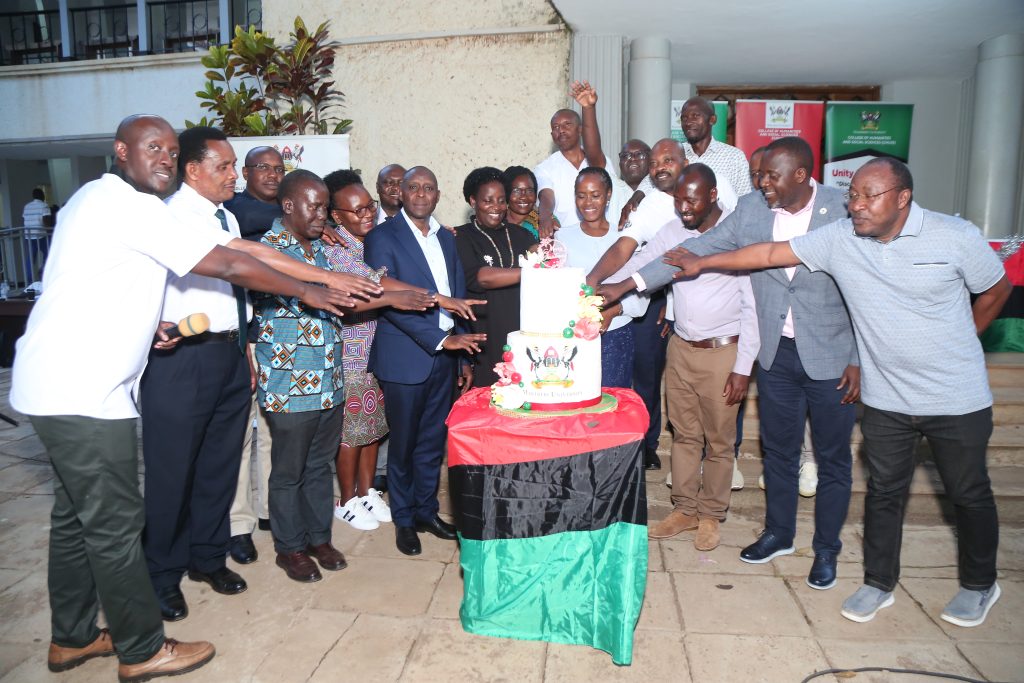
Five retired staff Dr. Micheal Wangotta Masakala, Dr. Anatole Kirigwajjo and Dr. Jackson Kizza Mukas (all from the School of Languages, Literature and Communication), Assoc. Prof. Florence Nansubuga (School of Psychology), Dr. Tusabe Gervase (School of Liberal and Perforing Arts) and Ms. Scovia Nganda Sekweyama (secretary from the School of Social Sciences) were recognised for their dedicated services to the university.
In addition to Dr. Pamela Khanakwa’s Award as Best PhD Supervisor and Dean, Ms. Birabwa Florence scooped the award of Best Registrar of the year. Birabwa is the registrar for the School of Liberal and Performing Arts.
Administrative and support staff including Ms. Mary Gyezaho and Annet Kashumbusha(both administrative secretaries in the Principals office), Farouq Lule (IT Officer), Godfrey Kakooza (cleaner), Charles Sebuguzi (driver) and Jane Anyango (Communications officer) were recognise with awards for outstanding service. Dr. Mohamed Mayanja Kajumba was from the School of Pyschology was recognised as the person with an outstanding talent in Handwriting.
The celebrations held in the Arts quadrangle were graced by the Vice Chancellor Academic Affairs Prof. Sarah Ssali and the Deputy Vice Chancellor in charge of Finance and Adminstration Prof. Ireeta Tumps.
Humanities & Social Sciences
Ugandan Journalists Trained on Peace and Gender-Sensitive Reporting Ahead of 2026 Elections
Published
3 weeks agoon
January 9, 2026By
Jane Anyango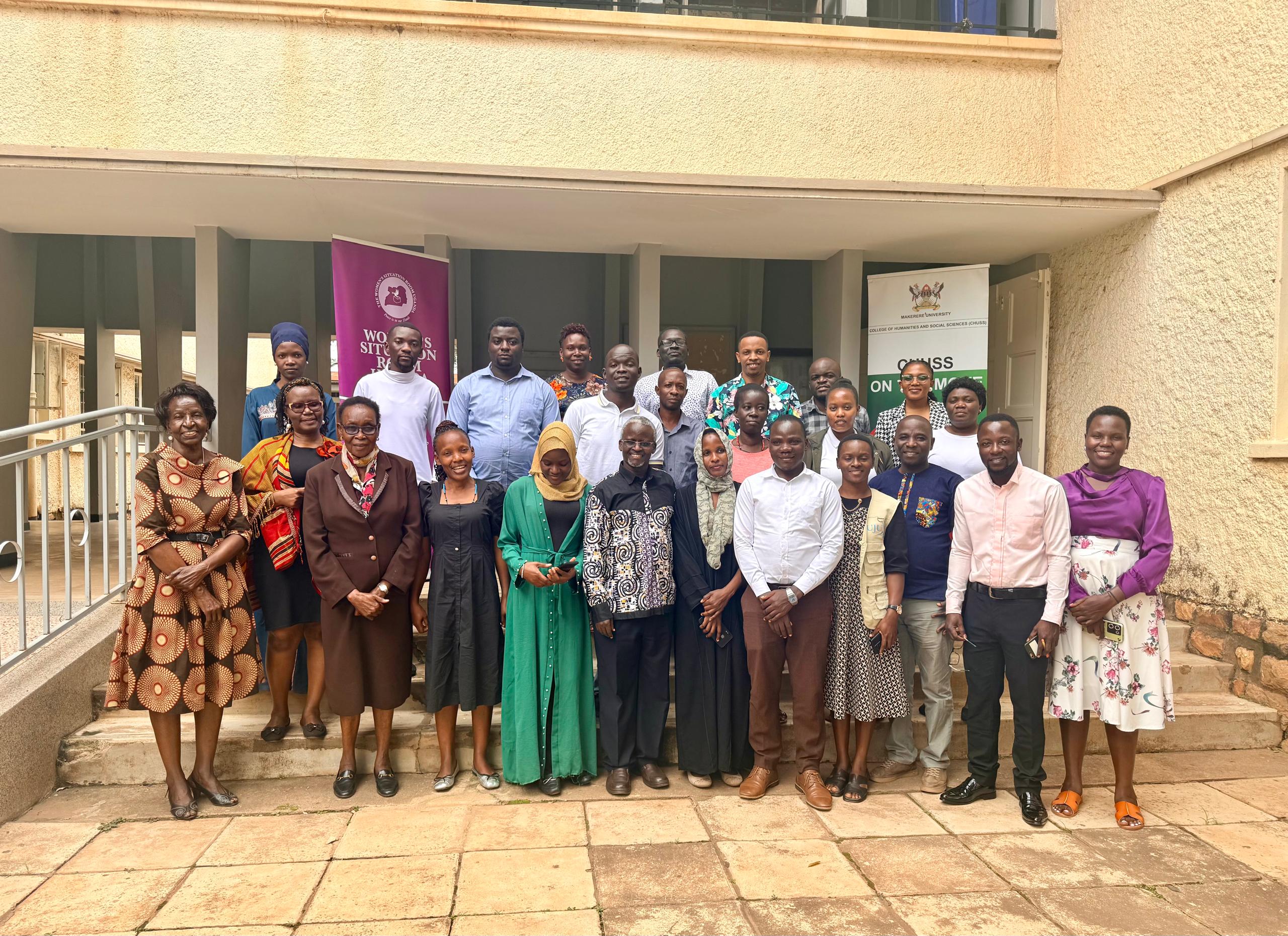
Kampala, Uganda – January 9, 2026
Ahead of the January 15 general elections, Ugandan journalists have undergone specialized training on peace and gender-sensitive reporting to ensure responsible media coverage during the election period. The two-day training, held from 8th to 9th January 2026 at Makerere University’s College of Humanities and Social Sciences Smart Room, was organized by the Women’s Situation Room (WSR) in partnership with various stakeholders and brought together journalists from across print, broadcast, and online platforms.
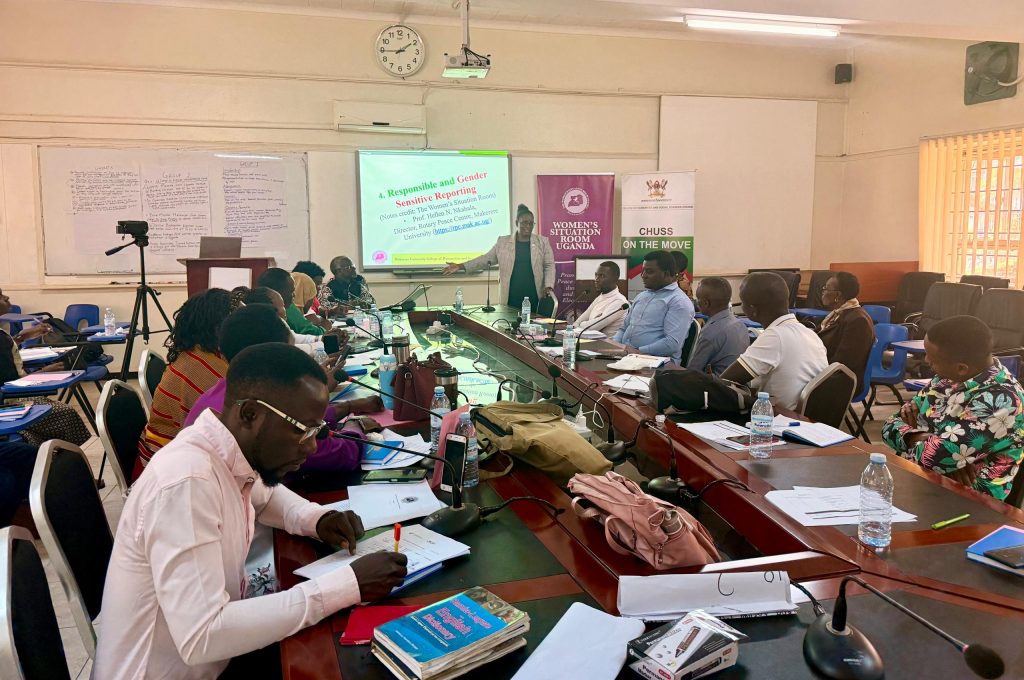
The main objective of the training was to strengthen the capacities of media in reporting and documenting electoral processes in a responsible and gender-sensitive manner. The specific objectives included: strengthening journalists’ skills to cover the 2026 elections in a fair, balanced, gender-sensitive, and non-violent partisan way; enhancing the role of media to enable citizens to be well-informed and actively participate in the election process; ensuring focused and balanced reporting on peace during and after elections; and strengthening partnerships between the WSR and media houses during the election period.
The training covered multiple critical modules. Day one focused on responsible conflict-sensitive reporting, emphasizing principles such as balance, impartiality, and accuracy. Participants explored the role of media as a relayer of the population’s voice, election monitor, catalyst for social cohesion and reconciliation, contributor to the accountability of political actors, and a platform for detecting and debunking digital media misinformation and hate speech.
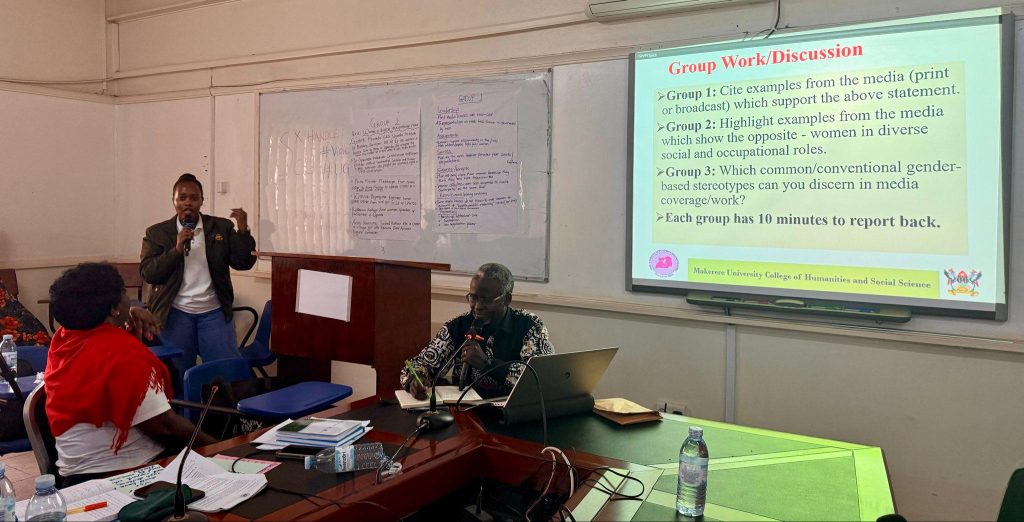
Day two addressed responsible and gender-sensitive reporting. Key aspects included the definition of gender-sensitive reporting, how to become a gender-sensitive reporter, critical elements in reporting with gender awareness, packaging gender-sensitive stories, and a checklist for detecting and avoiding gender-insensitive reporting.
Her Lordship, retired Judge Justice Mary Mayitum, emphasized the importance of peace as the foundation of development and democratic engagement. “Because we value peace more than anything. Without peace, really, you can do nothing. But where there is peace, you can have time to reflect, discuss with others, and join in meaningful dialogue,” she said. She warned that the country’s past conflicts, such as those in Gulu, underscored the necessity of maintaining national harmony.
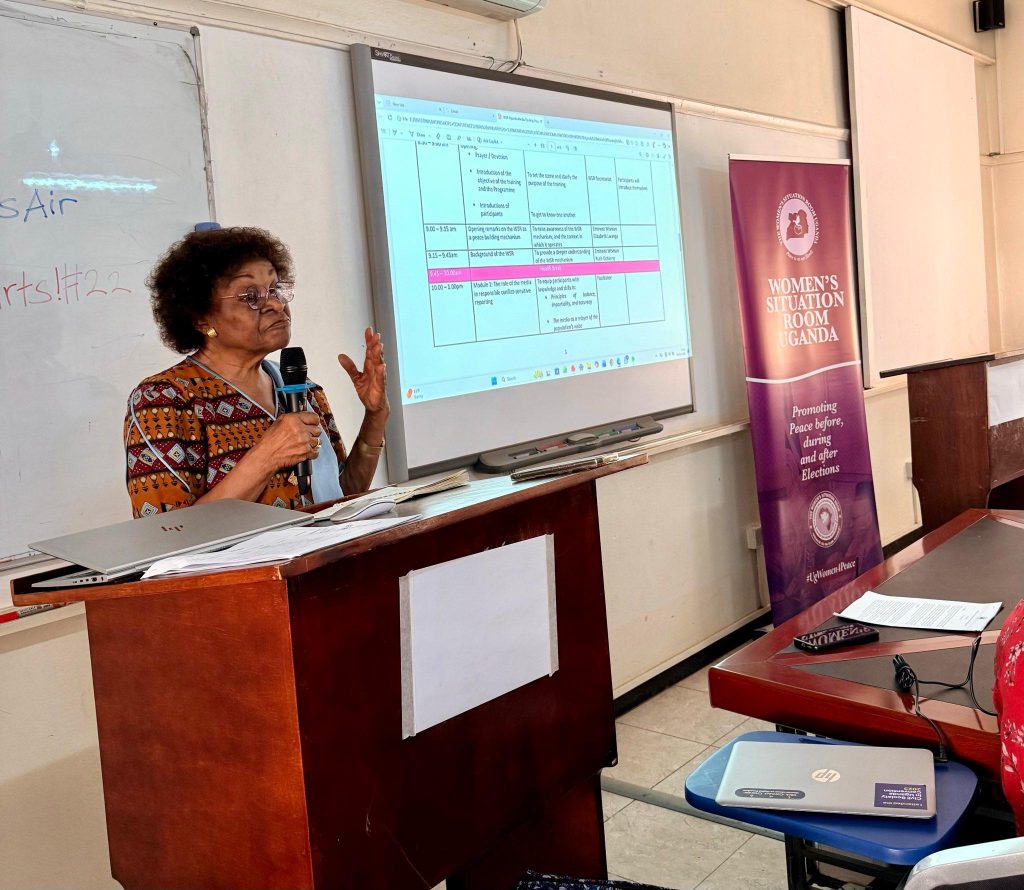
Justice Mayitum also urged other key election stakeholders to uphold peaceful conduct. “Being peaceful is the very heart of life. We have spoken to police, security personnel, political parties, and the Electoral Commission. We want politicians to have a code of conduct and to understand that it’s okay to think differently without fighting or hating one another,” she added.
Dr. William Tayebwa, lead facilitator and senior lecturer in the Department of Journalism and Communication at Makerere University, said, “This training is about conflict-sensitive reporting, peace journalism, and gender-sensitive reporting in the context of the elections. The emphasis was on giving female political candidates a voice while ensuring journalists report responsibly on election-related matters.”
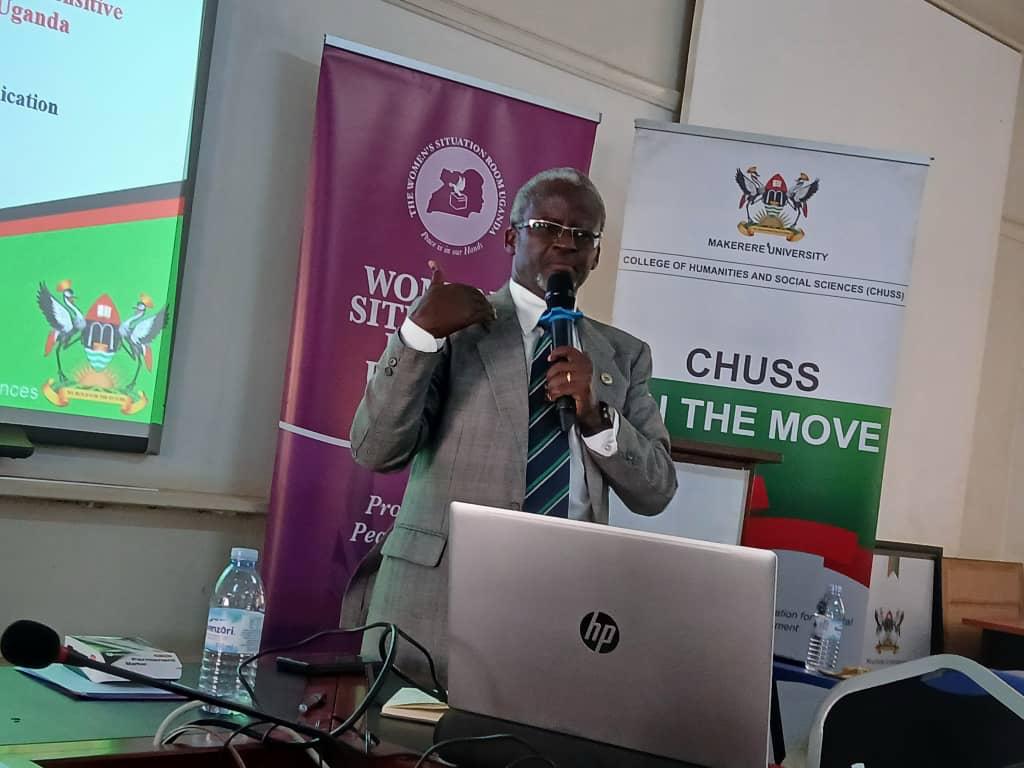
Participants described the training as timely and impactful. Tony Banizengabo of CBS Wakiso District said, “We’ve benefited a lot. We’ve been trained to write stories which bring peace, not conflict. Ahead of the elections, we are very ready to be part of peacemakers.”
Dorcas Kimono of UBC TV Kampala added, “It was so timely and rich. We learned how to report without promoting or fueling violence, giving voice to victims without angering them or encouraging violators. This is very vital, especially as we approach the 2026 elections.”
The training aims to equip media personnel with the knowledge and skills to uphold professional ethics while contributing to a peaceful, inclusive, and gender-sensitive electoral process.
Humanities & Social Sciences
CHUSS Invests Over UGX 100 Million in Interactive Smart Screens, Upgrades Teaching Infrastructure
Published
3 weeks agoon
January 9, 2026By
Jane Anyango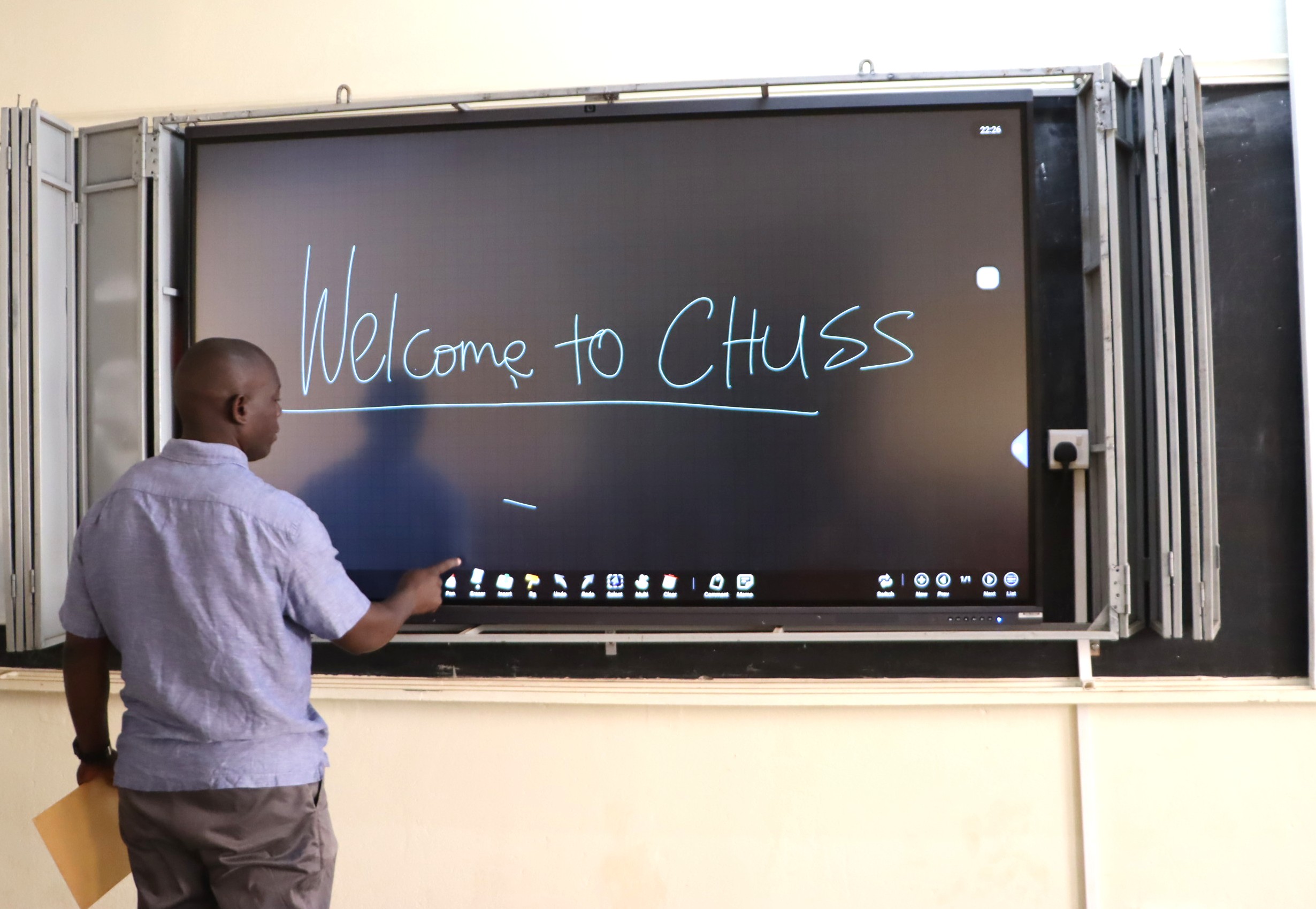
The College of Humanities and Social Sciences (CHUSS) has invested over UGX 100 million in the acquisition and installation of state-of-the-art interactive smart screens, marking a major step in strengthening digital teaching and learning at Makerere University.
Under the investment, 86-inch interactive 4K smart screens have been installed in major lecture rooms across the college’s schools, replacing traditional projectors and whiteboards. The upgrade is intended to modernise instructional delivery, enhance student engagement, and support blended and hybrid learning models.
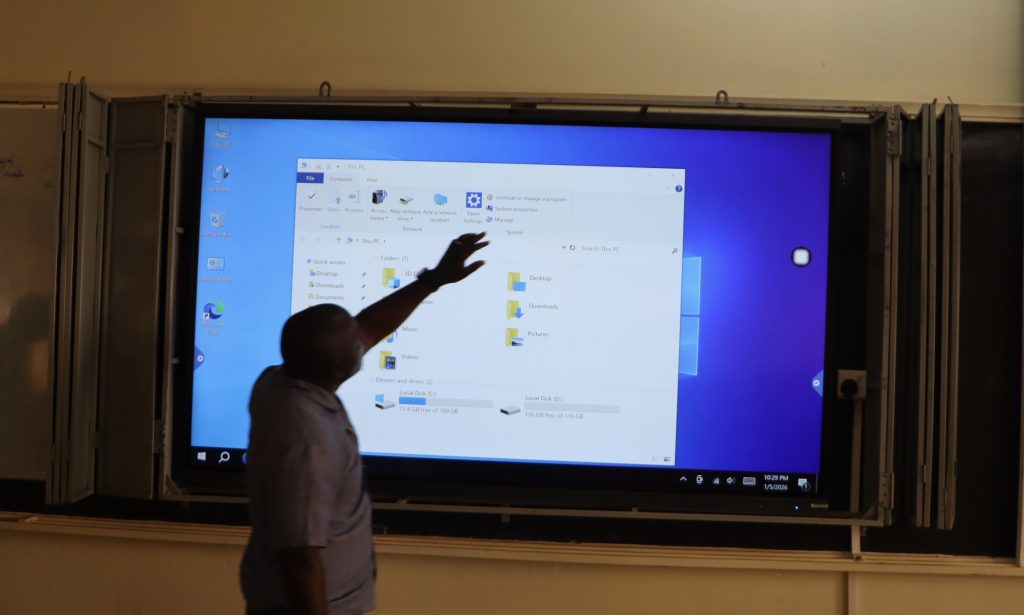
The touch-sensitive smart screens enable lecturers to write, draw, and annotate content directly on the display, while simultaneously integrating multimedia resources such as videos, presentations, and online materials. The screens support wireless screen casting from laptops, tablets, and smartphones, allowing for smooth, cable-free presentations and real-time sharing of students’ work during lectures and group discussions.
Designed to promote interactive and learner-centred pedagogy, the smart screens feature multi-touch capability that allows several users to interact with the board at the same time. This functionality supports collaborative learning, problem-solving exercises, and group presentations, making lessons more engaging and inclusive for students with diverse learning styles.
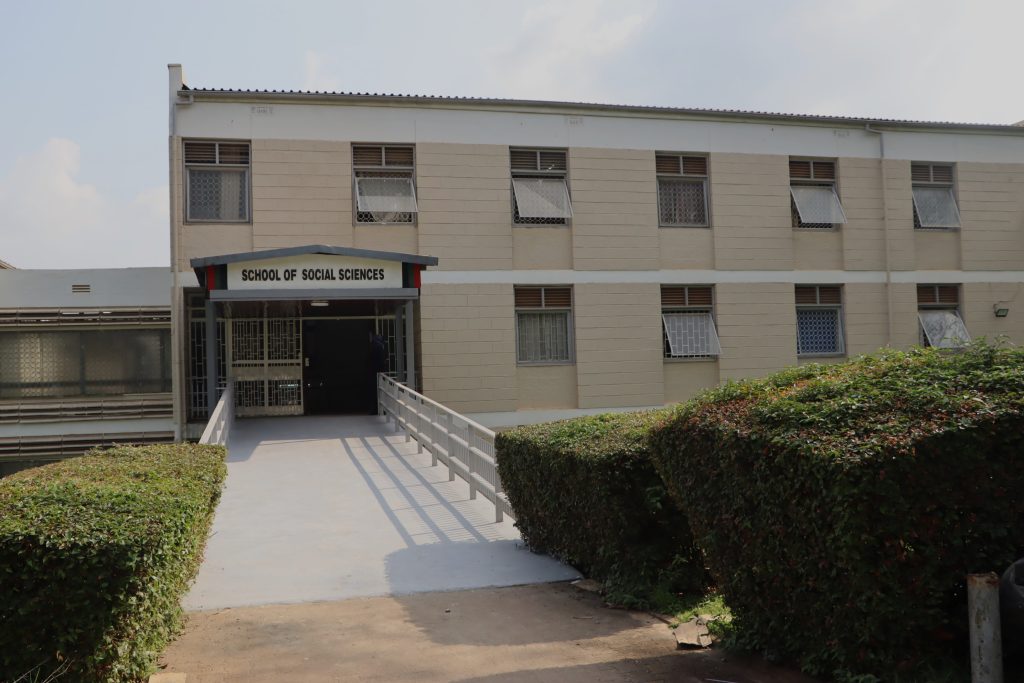
The boards are equipped with built-in cameras, microphones, and speakers, enabling seamless hybrid teaching through platforms such as Zoom, Microsoft Teams, and Google Meet. This allows lecturers to conduct virtual and physical classes simultaneously, record full lectures, and share them with students for later review, revision, or catch-up purposes.
Running on dual Android and Windows operating systems with full internet connectivity, the smart screens provide direct access to online academic resources, digital libraries, and learning management systems. Their AI-powered features further enhance lesson organisation, content clarity, and efficient, paper-free instruction, contributing to a more sustainable learning environment.
To ensure safety and prevent misuse, the smart screens are secured in fabricated metallic safety boxes installed in the lecture rooms.
Beyond digital infrastructure, CHUSS has also undertaken additional physical improvements. The Russian Lecture Room in the School of Languages, Literature and Communication has been furnished with new chairs, tables, and a projector screen, significantly enhancing its teaching environment.
The college has further improved staff working spaces, with the School of Psychology renovating office space and classrooms in Block A, while similar renovations have been carried out in the School of Social Sciences.
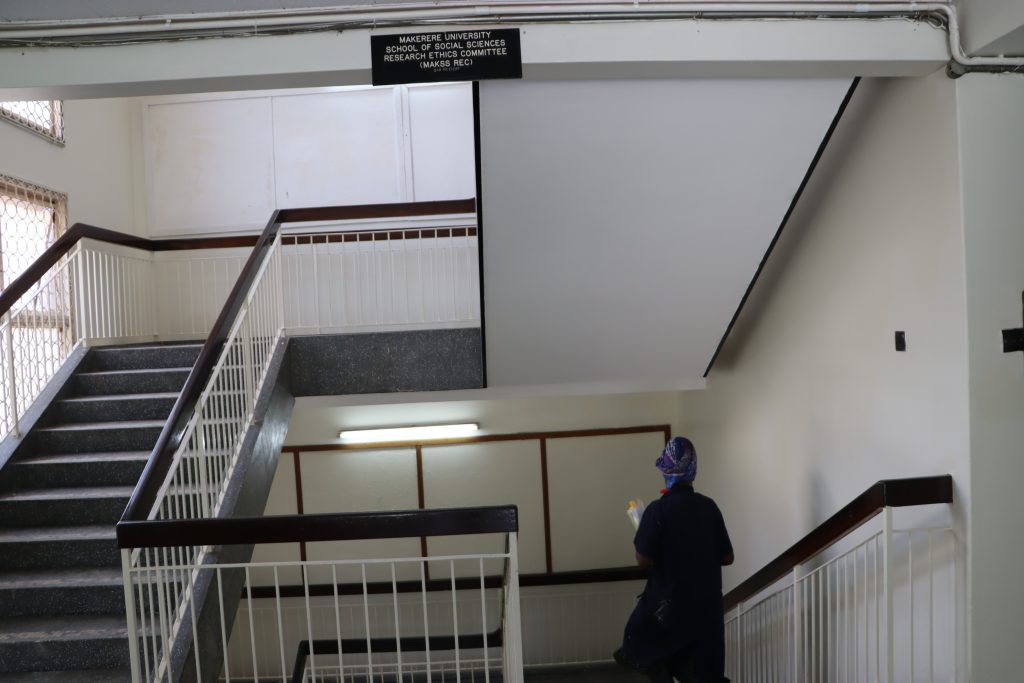
The infrastructural upgrades underscore CHUSS’ commitment to improving the quality of teaching, learning, and staff working conditions in line with Makerere University’s digital transformation agenda.
Trending
-

 General2 weeks ago
General2 weeks agoPress Release: Semester II Set to Start 10th Feb, 76th Graduation Dates Confirmed
-

 General5 days ago
General5 days agoPress Statement: Makerere University Congratulates Former Staff and Students on Successful Election to Public Office
-

 Innovation2 weeks ago
Innovation2 weeks agoCall For Applications: Annual Innovation Commercialisation Award
-

 General4 days ago
General4 days agoPress Statement: Makerere 76th Graduation Ceremony
-

 Computing & IS2 weeks ago
Computing & IS2 weeks agoCoCIS CIPSD Short Courses Jan-Mar 2026
